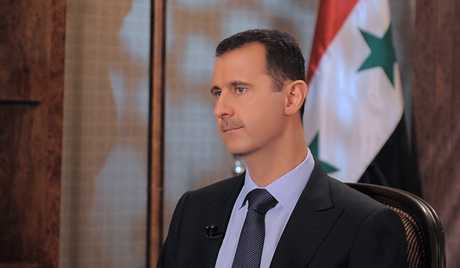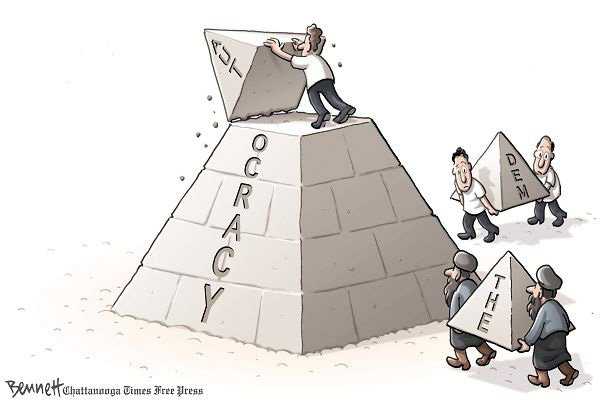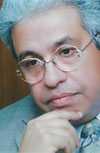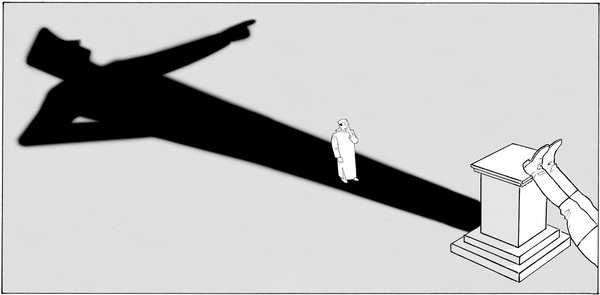
by Jonathan Azaziah
This is the first of a 2-part series that exposes the ‘Syrian Revolution’ as a destabilization operation commanded by the usurping regime of Israel and assisted by its allies in Washington D.C., Paris, London, Riyadh and other faces hiding behind masks of friendship and neutrality. This selection deals with the 40+ years of history that led to the unprecedented events unfolding now and how Tel Aviv and Riyadh have once again joined hands in modern day to eliminate Syrian Resistance once and for all…
Al-Jumhuriyyah al-Arabiyyah as-Suriyyah, the Syrian Arab Republic, or simply, Syria, is being systematically assaulted by the world’s arrogant powers. No, Syria isn’t being bombarded with bombs and missiles from helicopter gunships or F-16s (at least… not yet). It is being bombarded by something else; something more sinister, more cunning and deadlier. It is being bombarded by an entity that is almost full of life in its undying intransigence: Zionist-designed, Zionist-enforced ‘democracy.’
Like the poison dart frogs of the Amazon rain forest, the Angel’s Trumpet flowers scattered along the Andes Mountains from Colombia to Chile and the blue-ringed octopuses swimming through the tide pools of the Pacific from Japan to Australia, this ‘democracy’ is associated with the idea of an almost magnificent beauty. It is described as something of uniqueness, a creation indigenous to the higher-learning-infested institutes of the West; something alien to the other peoples of the world; the easterners, those of Arab and African descent. Fallacious however, are these assumptions.
Also like the poison dart frogs, the Angel’s Trumpets and the blue-ringed octopuses, the beauty of ‘democracy’ is merely a front for the venom that lies beneath an eye-pleasing exterior. A venom that can kill. A venom that has killed. In the millions. Democracy is the kiss of death, bringing ruin, pillage and desecration while cloaked in the garments of freedom, equality and higher-learning. If democracy was an entity of female origin, it would be the succubus of mythological lore. If it were of male origin, it would be the incubus. And the easterners, Arabs and Africans, can speak for millennia about what this demonic ‘democracy’ actually represents. Syrians beware, ‘democracy’ is targeting you now; heed the lessons of the past, taught in blood by your oppressed brothers and sisters.
The people of Iraq, irradiated by an eternity of depleted uranium, can tell you in graphic detail of the wonders democracy has brought them: 6 million Iraqis are now refugees, 2 million of which are displaced internally, 2 million Iraqi women are now widows, 5 million Iraqi children are now orphans and 80% of Iraqis have witnessed shootings, kidnappings, rapes, killings and other atrocities (1). The people of Afghanistan, reeling from more than 4 decades of American military-intelligence adventurism, can tell you in equally graphic detail of democracy’s glorious benefits: 7.4 million Afghan men, women and children are now living in hunger on the brink of death from occupation-induced starvation (2).

Palestine, a holy and historic land that has been called home by prophets and saints, heroes and revolutionaries, has been occupied by a usurping entity for 63 years. This entity that calls itself ‘Israel’ also calls itself the ‘only democracy in the Middle East.’
Palestinians scream at the world, day and night, at the top of their lungs, that this democracy is farcical. In the ethnically cleansed Palestinian land now known as ‘Israel,’ at least 30 laws exist that discriminate viciously against non-Jews (3). Weekly protests for freedom from occupation and respect of universal human rights are savagely suppressed by IOF with tear gas, ‘skunk’ water, live ammunition and sound bombs (4), and last month, a 16-year old Palestinian boy named Milad Ayyash was shot to death by an illegal settler (5).
In the besieged Gaza Strip, 95% of the factories are closed and 93% of the water is contaminated due to Zionist pollution and the Zionist entity’s criminal siege (6). In the occupied Jordan Valley, Palestinians are denied education, health care, transportation, electricity and water (7). In occupied al-Quds, land still internationally recognized as Palestinian is ‘zionized’ daily, with the latest announcement being 7,900 new illegal settlements (8). These represent a fraction of the principles embedded in the ‘democracy’ of Zionism; occupation and apartheid, land theft and slow drip genocide.
Kashmir is a place of such angelic gorgeousness it is commonly referred to as ‘heaven on earth.’ This heaven though, could not be any more miserable. It, like Palestine, is also occupied by a usurping entity and has been so for 64 years. This entity is known as Hindutva, a sister of Zionism, and it refers to itself as ‘India, the world’s largest democracy.’ Rape, torture, brutalization, murder, suppression of protests, epidemic-like influx of narcotics flooding the streets at the hands of Indian and Israeli intelligence, beatings, kidnappings, demolitions of homes, desecration of mosques and shootings are just a smidgen of what Kashmiris experience on a daily basis under the criminal Indian occupation (9). And for the record, Hindutvadi occupation forces carry out their heinousness with Israeli weaponry (10).

Taking this, never-ending fountain of ‘democracy’ into account, one word can describe what is taking place in Syria: woe; woe that mutates a little further into chaos and disaster with each passing moment.
The late George Orwell, author of the masterpieces ‘1984’ and ‘Animal Farm,’ once eloquently wrote, “Every war when it comes, or before it comes, is represented not as a war but as an act of self-defense against a homicidal maniac.” This scenario is being played out to the letter in Libya. Under the guise of saving ‘peaceful, pro-democracy’ Libyan protesters from the guns and air raids of ‘Mad Dog’ Muammar Qaddafi, a ‘humanitarian intervention’ was initiated at the behest of some of the greatest ‘humanitarians’ of modern times: Paul Wolfowitz, Dan Senor, Eric Edelman, Elliot Abrams, William Kristol, Robert Kagan, (a good portion of) the Zionist monsters responsible for orchestrating the mutilations of Iraq and Afghanistan (11).
It became evident shortly after the Zionists’ intervention call that the protesters weren’t really protesters at all. They were armed insurrectionists being directed by the CIA to take down Qaddafi in a blatant regime change operation (12). These ‘rebels’ are now not only ready to recognize the usurping Zionist entity, something Muammar Qaddafi never did and never would (13), they are receiving on-ground orders and training from Israeli military advisors (14) and they have signed multiple agreements with Zionism, including one which would provide the occupier of Palestine with a military base in Libya (15). All the while, US-led NATO pounds Tripoli on a nightly basis with depleted uranium and white phosphorus (16). The latest attack murdered at least 9 Libyan civilians, including 2 toddlers (17). Democracy’s ‘awe’ is being painfully felt in Libya; the ‘shock and awe’ of NATO’s criminal bombardment.
The Zionist media-concocted scenarios that were used as justification to take down ‘homicidal maniac’ Qaddafi are now being recycled to take down ‘homicidal maniac’ Bashar al-Assad, vastly popular President of Syria and stalwart of the Resistance Axis that includes the Islamic Resistance of Lebanon, Hezbollah, and the Islamic Republic of Iran. It is a plot that involves major players, both regional and global. And at the very core of this sadistic agenda, which will only leave the Syrian people trapped in a bloodbath to pick up the shards of their lives, is the Zionist entity’s most ludicrous, nightmarish fantasy: Greater Israel. Syria is being destabilized by a ‘democratic’ demon intent on giving the Resistance government the kiss of death, sending it to the gallows forever and subsequently enslaving the Syrian people to the Zionist machine of neoliberalism and colonization.
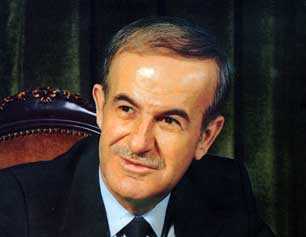
History On The Fly I: The 1976-1982 ‘Uprising’
From the moment Israel launched its criminal, preemptive war in June 1967, Syria was officially at war with Zionism. The usurping entity took over al-Jaulan (the Golan Heights, an ancient mountainous region in southern Syria) during that war and the illegal occupation has existed ever since. And in 1981, the Zionist entity engaged in yet another illegality: it ‘annexed’ al-Jaulan and imposed Israeli laws, jurisdiction and administration on the Syrian citizenry (18).
The President during the time of the illegal annexation was none other than Hafez al-Assad, Bashar al-Assad’s father. Hafez had come to power on November 13,1970 in the Syrian Corrective Revolution, overthrowing Salah Jadid whose popularity sharply declined due to his poor domestic policies, political repression and loss to the Zionist entity in the 6 Day War. Hafez, like his son that would succeed him, was widely viewed with respect for his foreign policy and implementation of social justice-based policies at home. His 1973 constitution guaranteed equal rights and status for women throughout Syria, and also in ‘73, he gained back a portion of al-Jaulan after the Yom Kippur War. He invested Syria’s wealth in the sectors of education, medicine, the middle class and the rehabilitation of the urban areas throughout the nation. Under Hafez al-Assad, literacy and economic growth skyrocketed.
But yet, despite Hafez al-Assad’s popularity and his commitment to providing for the Syrian people, there was a disconnect with a marginal, but powerful party within Syrian society: the Muslim Brotherhood (MB). From 1976-1982, the MB waged armed warfare against Hafez al-Assad’s government, though the Zionist media would like the globe to believe the protests were ‘peaceful.’ This ‘uprising’ was fully backed by the Zionist-occupied government residing in Washington DC, the dictatorial regime of the US-Israeli puppet Saddam Hussein and of course, Tel Aviv itself (19).
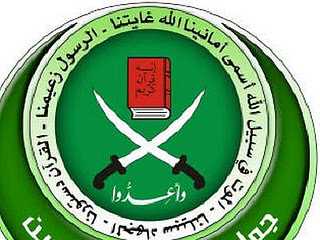
This was no peaceful uprising but an attempt at a coup d’etat, fully incited by the puppet regimes of the Western-client states of Iraq, Saudi Arabia and Jordan (20). The reasons? To strike back at Hafez al-Assad for supporting Iran during the Iran-Iraq War, an act of aggression supported and funded by the GCC, the US and Israel (21), and to weaken his government to prevent it from properly intervening in the Lebanese Civil War, 15 years of massacres and bloodshed manipulated by the Zionist entity and America to fractionalize Lebanon into smaller, subservient-to-Zionism satellite states (22).
The MB, armed by the Saddam Hussein regime and the powerful Saudi Arabian monarchy, was ruthless in its campaign of terror against the Assad government. It conducted assassinations of high-level government officials and murdered thousands of civilians, including dentists, teachers and doctors, and off-duty soldiers and policemen. In June of 1980, the MB went after Hafez al-Assad himself in Damascus, adding yet another unequivocal proof that the ‘uprising’ was anything but peaceful (23).
The Saudi-financed, Zionist-supported Syrian Muslim Brotherhood’s insurrection against Hafez al-Assad’s government came to an end in the city of Hama in February 1982. Media reports and ‘documentation’ from ‘human rights groups’ stretching far and wide, coast to coast, have labeled what took place in Hama as a massacre. Typically, nothing could be further from the truth.
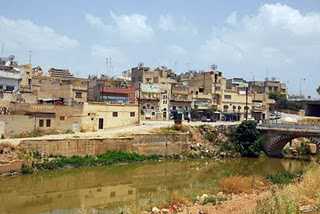
In the realm of the real, Hama was a war zone. In the realm of the real, there were heavy casualties on both sides. It began when the MB opened fire on mosques frequented by government officials and their families, as well as their homes, murdering men, women and children without mercy. The MB then mutilated the bodies in the streets. Syrian security forces responded by raiding a massive weapons cache that was central to the MB’s anti-government activities to subdue the uprising. But when the MB’s killings continued, two full brigades of soldiers, a new special operations militia and special security units were deployed into Hama to defeat the conspiracy, which Hafez al-Assad accurately described as ‘the US interfering in Syrian affairs,’ once and for all. After brutal fighting continued for several weeks, the Syrian Muslim Brotherhood’s insurrection was beaten and its leaders were sent into exile, with thousands dead in a full-scale civil war-like bloodbath, and relative calm had returned to Hama (24).
The aforementioned human rights groups and the propaganda that they disseminated (and are still disseminating) in regards to the battle of Hama are the same human rights groups disseminating vile, warmongering propaganda against Bashar al-Assad now. These organizations are always at the forefront of any Zionist-instigated war/invasion, posing as the defenders and upholders of the oppressed while delivering them to the democracy demon.
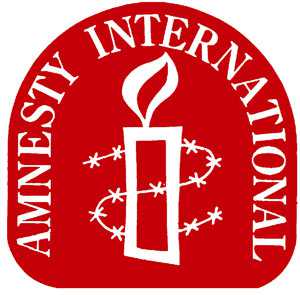
Leading the pack, is Amnesty International, the internationally-renowned organization that is self-described as politically independent. Indeed, independent of all ideologies excluding those that bring ruin to enemy nations of the hegemonic powers. Amnesty stated that somewhere between 10,000-25,000 were killed by Syrian security forces in the ‘Hama massacre,’ with most casualties being civilians (25). ‘Government sympathizes,’ i.e. those who are interesting in acquiring the truth of the matter, put the Syrian Muslim Brotherhood’s casualties between 3,000-5,000 fighters (26).
Amnesty International is no stranger to falsehood. It is intimately linked to the internationalist-Zionist war criminal billionaire George Soros and was an integral part of Soros’ color revolutions in Eastern Europe, spreading propaganda against the now-overthrown regimes and it serves this exact purpose to this very day (27). Amnesty is also a ‘Standard Corporate Member’ of the Chatham House, Britain’s version of the Council on Foreign Relations, the parasitic ‘mother of all think tanks’ in America. The Chatham House, like the CFR, is funded by a who’s who of globalist mega-corporations and media outlets including the Rothschild-owned Economist, Zionist-run BBC and Zionist-dominated Goldman Sachs. Its most recent criminal activity involved generating malicious propaganda to give credence to a color revolution in Thailand (28).
But the lie that Amnesty International is most famous for propagating, is what led to the 20-year annihilation of Iraq: 312 Kuwaiti babies being murdered in their incubators by Iraqi forces (who invaded Kuwait on the green light from the Zionist-occupied US government), based on the testimony of the daughter of the Kuwaiti ambassador to the US posing as a witness to the murders. Not only did the story turn out to be completely, totally and utterly false, it was revealed to be a high-level Zionist operation with British intelligence assets within Amnesty working closely with ultra-Zionist war criminal Tom Lantos and his Congressional Caucus for Human Rights to pave the groundwork for the invasion (29). What followed, as it is said, is history… bloody, genocidal history. These three instances of Amnesty’s subversive activities alone, along with its shady Zionist backers, funders and collaborators, expose it for what it truly is.
Another organization that has targeted Syria for the Hama massacre and other alleged abuses at Syria’s Tadmor Prison, is the notorious Human Rights Watch (HRW). Although HRW admits within the report that the Syrian Muslim Brotherhood engaged in open, brutal warfare against the Hafez al-Assad government, and although HRW admits within the report that it cannot verify a single account of abuse at Tadmor prison before, during or after the battle for Hama, it still pleads its case to the international community of warmongers, kleptocrats and hypocrites that Syrian officials must be brought to justice for their crimes (30).

HRW is another tentacle of Zionist billionaire-criminal George Soros’ octopus-like empire, one that he vehemently and publicly supports and funds to the tune of $100 million (31). HRW worked hand in hand with the CIA, Mossad and Zionist Lobby organizations like JINSA (Jewish Institute for National Security Affairs) and AIPAC itself to perpetrate the ‘Kurdish Genocide’ myth, a story that the Zionist cabal in the White House would cling to and wield as its last weapon to justify the criminal invasion of Iraq in 2003 (32). There is not a drop of evidence that Saddam Hussein carried out any such atrocity against the Iraqi Kurds, nor is there a drop of evidence that Saddam Hussein carried out the Halabja massacre, another HRW fabrication (33). Saddam was a loyal puppet to the Zionist power axis and a criminal, but a mass murderer he was not. Thanks to the money poured into HRW by Soros, HRW is deeply embedded in the global media sphere and can transform anyone it pleases into mass murderers. Rivers of blood stain its corrupt hands.
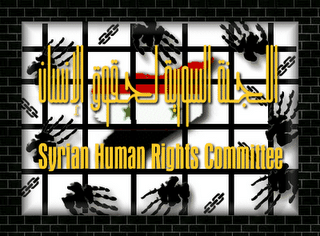
The Syrian Human Rights Committee (SHRC) is the least well-known of the ‘human rights’ militias that assaulted Hafez al-Assad’s government for what took place in Hama, accusing the Assad government of murdering 30,000-40,000 civilians with ‘all kinds of artillery’ and demanding Assad and other party officials be brought before the International Criminal Court for war crimes (34). Of course, no evidence is provided for this outlandishness. Though the SHRC doesn’t have the notoriety of the previously mentioned organizations, it is just as dangerous for it represents ‘indigenous’ activism and criticism of Hafez al-Assad and therefore, its perceived indigenousness grants legitimacy to its claims, no matter how bizarre of farfetched. Don’t let the name hoodwink you however; the Syrian Human Rights Committee is anything but indigenous. It is self-admittedly based in London (35).
A closer look at SHRC’s affiliations reveals what its real agenda is, and it is by no means one based on human rights, dignity and prosperity for the Syrian people. Not only does SHRC avidly promote the Soros-funded, propaganda-manufacturing institutions of Amnesty International and Human Rights Watch, it is an affiliate of the Patriotic Union of Kurdistan {PUK} (36), headed by Kurdish-Iraqi war criminal and current Iraqi President Jalal Talabani. PUK and the Kurdistan Democratic Party (KDP), headed by Massoud Barzani, are willingly overseeing the Zionist entity expand into occupied Iraq, take over multiple religious shrines and through a Mossad campaign of false flag terror, ethnically cleanse northern Iraq of indigenous Christians (37). These parties have been proxies of the illegitimate Israeli regime since the 1950s (38) and the militias of PUK and KDP are both Israeli-trained (39). What kind of organization proclaims to be representative of the Syrian people and the Syrian nation, a people and nation at war with the Zionist entity, while promoting groups subsidized by Zionists and Israeli intelligence? Rhetorically, an organization serving a Zionist purpose.
Amnesty International, Human Rights Watch and the Syrian Human Rights Committee with resurface shortly and even Hama will be revisited, as all are integral to the current Zionist plot being orchestrated against Hafez al-Assad’s son, Bashar.

History On The Fly II: Oded Yinon, A Clean Break and Direct Israeli Aggression
It is nowhere near a coincidence that the same month (February of 1982) Hafez al-Assad’s government weathered the storm of chaos inflicted upon Syria by the Syrian Muslim Brotherhood, a disturbing essay appeared in the Kivunim Journal For Judaism and Zionism, a magazine published by the World Zionist Organization’s Department of Publicity, entitled ‘A Strategy For Israel In The Nineteen Eighties.’ The essayist was Oded Yinon, a senior Israeli foreign policy advisor. Yinon laid out a twisted plan of ethnic cleansing and partitioning on sectarian lines to break up Arab nations into smaller states that would effectively (and perpetually) serve as Zionist clients. One of the Arab nations discussed was Syria.
Yinon put forth not just a string of theories, but foreign policy objectives that he considered essential to the survival of the usurping entity. He viewed Syria’s dissolution a primary long term goal and the dismantlement of its army the short term goal for Zionism. He wrote that Syria will fall apart if his plan is followed; an Alawi state on the Syrian coast, a Sunni state in the Aleppo area, another Sunni state in Damascus that would be hostile to the government in Aleppo and lastly, a Druze state to be set up in southern Syria, preferably in occupied al-Jaulan, to be governed by the Israeli military (40). This plan is not only disturbing but bone-chilling, considering these very areas are the areas rocked with unrest today. The Saudi-Israeli-American axis failed in Syria in 1976-1982. Oded Yinon’s strategy was put forth to regroup, rearm and re-engage.
Fast forward 14 years later to 1996, and another work of Zionist treachery placed the Syrian nation in the crosshairs. Known as ‘A Clean Break: A New Strategy For Securing The Realm,’ or simply, the ‘Clean Break Papers,’ the Zionist warmongers responsible for ravaging Iraq into oblivion, led by Richard Perle, Douglas Feith, Robert Loewenberg, David Wurmser, and Meyrav Wurmser, penned this essay as the main governing policy for the butcher of Gaza, Benjamin Netanyahu.
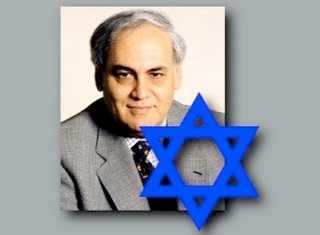
The ‘Clean Break’ authors wrote that Netanyahu’s government should bomb targets of Syrian interest in Lebanon in hopes of provoking Syria, as well as the Lebanese Islamic Resistance movement, Hezbollah, into a greater war. If this didn’t work, the deranged authors opined, then Zionism should just bomb Syria outright. The ‘Clean Break Papers’ also reinforced the lies about the battle for Hama and suggested that the Syrian government participates in obscene levels of drug trafficking. Taking it a step further, Perle and company wrote that the Zionist entity should reject peace with Syria, reject the return of al-Jaulan and move to ‘contain, weaken and roll back’ the Syrian state for its own hegemonic interests (41). This document, like Yinon’s, transcends the realm of disturbing and breaches the realm of bone-chilling, as it reflects several events involving Zionism’s assault on Syria in recent years. Most notably, it states that Zionism should ‘diplomatically, militarily and operationally’ support Jordan and Turkey in destabilization efforts against Syria. Exactly what is taking place today.
On February 14th 2005, the car bomb heard ‘round the world detonated at the St. George Hotel in Beirut, Lebanon. The target of the assassination was former Prime Minister Rafiq Hariri. The Zionist media and puppet governments across the Western world immediately blamed Syria and Hezbollah for the hit. Evidence? Telecommunications data obtained by the Israeli-British-US-financed United Nations’ Special Tribunal For Lebanon (STL). There was one problem with this data however. It came from an Israeli spy line, planted by the Zionist entity’s assets in its all-out penetration of the Lebanese telecommunications sector (42).
Apart from the obviousness of the benefits that the usurping entity would acquire with the assassination, i.e. a revamp of civil war in Lebanon and the further isolation of Syria and Hezbollah, this piece of evidence by itself cast light on possible Zionist involvement. But then his eminence, Hezbollah Secretary General Sayyed Hassan Nasrallah, took it a step further in August 2010, over 5 years after the assassination. The Sayyed stepped forward because the STL was wreaking more and more havoc in Lebanon, and to a lesser extent, in Syria. He had to clear Hezbollah’s (and Syria’s) name(s) before Israel obtained its desired result: another war. In a live conference via video feed from his bunker, Sayyed Nasrallah presented video evidence and sworn testimony from apprehended Zionist agents that debunked the Zionist media’s lies and exposed Rafiq Hariri’s assassination as an Israeli intelligence operation (43).
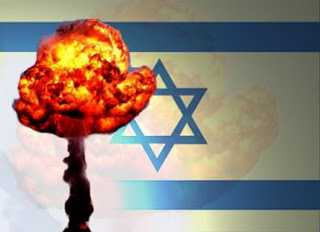
Following the Hariri assassination, the Zionist entity upped the ante with a new round of aggression against Syria. And this time, it wasn’t by proxy. It was direct. In late 2006, Mossad hacked the laptop of a senior Syrian government official while he was staying in London and after planting a Trojan horse, the Zionist intelligence service obtained information about a Syrian facility known as al-Kabir. The information illegally obtained would lead to Israel’s ‘Operation Orchard,’ the criminal, unilateral September 6th, 2007 bombing of al-Kabir by Zionist warplanes. Israel and the United States accused Syria of building a nuclear facility, and the powers then cited the IAEI finding uranium on the scene as proof. Bashar al-Assad vociferously rejected the allegations and maintained that it was nothing more than a conventional military facility and that Israel committed an act of war. He further said that the uranium found at al-Kabir was planted by Zionism (44).
Despite the Zionist media’s best attempts at whitewashing the act of Israeli aggression against Syria as ‘justifiable’ because a nuclear facility belonging to an ‘enemy state’ was bombed, its narrative repeatedly crashed and burned. Intelligence experts, citing precision satellite imaging (45), several investigative journalists (46) and the director of nuclear policy at the Center for American Progress (47) all confirmed that al-Kabir was nothing more than a military warehouse that stored various armaments, including rockets and missiles. There was absolutely nothing nuclear about it.
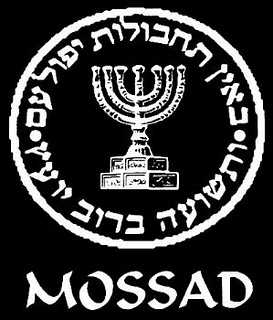
This flagrant violation of Syria’s sovereignty wasn’t enough for the Zionist entity however, as it never is. No, the usurping Israeli state needed blood. And it needed blood that would send a message to not only Syria, but the Resistance Axis as a whole. On August 1st, 2008, Syrian General and Special Presidential Advisor for Arms Procurement and Strategic Weapons Mohammed Suleiman was assassinated by sniper fire in the port city of Tartus. Suleiman was extremely close to Bashar al-Assad, he was in charge of financing and arming the Syrian military and most importantly, he was also the Syrian government’s liaison to Hezbollah. The most likely suspect in the killing was obviously the Zionist entity. Typically, the Israeli regime denied any involvement, but its denial was utterly bizarre. An Israeli defense source told Zionist-owned, Zionist-run Sky News, “To the best of my knowledge, we didn’t do it (48).” It seems, that on this day, the hasbara was sloppy.
Disregarding Tel Aviv’s pathetic attempts at covering its tracks, the assassination of General Suleiman was indeed revealed to be part of a three-prong Israeli intelligence operation, attached to its bombing of al-Kabir and its criminal extrajudicial killing of Hezbollah commander Imad Mughniyeh (49). Long-time Israeli spy (since 1982) Ali Jarrah confessed to providing essential logistics for the killing of General Suleiman, as he scouted various points in Tartus that would later be used in the Zionist operation (50). Additionally, Syrian sources later confirmed that Mossad was behind the high-profile murder and act of war, and that the sniper was an Israeli agent (51).
Despite multiple attempts at provoking Syria into war by violating its sovereignty and waging nonstop war on its ally, the Lebanese Islamic Resistance of Hezbollah, the Zionist entity failed. And as events unfold in Syria today, with innocent blood flowing from moment to moment, it is clear that Israel has reverted back to its original plan, what nearly achieved success decades ago in ousting Assad’s father and crushing the Resistance Axis, and what was laid out by Oded Yinon and the ‘Clean Break’ study group: an armed, insurrectionist coup d’etat, manipulated by Israel and its regional allies under the guise of a ‘democratic’ revolution. ‘Kiss of Death’ 2.0 initiated.
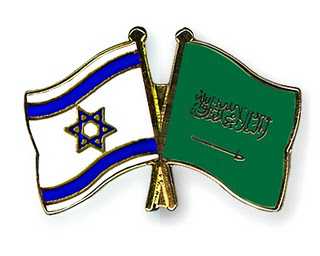
The Syrian Revolution: 100% Manufactured by Israel and Saudi Arabia
When events that reflect a greater geopolitical shift begin to unfold, there are two questions that must be asked regarding the game-changers to accurately assess why the said shift is occurring: Who is behind the events? And, who benefits from them? In the case of what is being referred to by the international Zionist media as the ‘Syrian Revolution,’ the organizers and benefactors of the unrest beleaguering Syria are the Zionist entity and the House of Saud, controllers of ‘Saudi’ Arabia.
Since 2004, Mossad had not only been funding Syrian opposition groups with millions of US dollars, but directing them. The funding continued until the end of 2009. Mossad was running a unit of cyber dissidents, training them to spread hasbara against Bashar al-Assad and the Resistance Axis and even offering them sanctuary in Israeli logistics facilities. Mossad worked hand in hand with the Zionist-run, Zionist-founded National Endowment for Democracy (NED) in recruiting these dissidents to incite violence within Syria. NED of course, has been at the heart of the ‘Arab Spring’ from the very beginning. NED’s involvement with Mossad in organizing Syrian opposition groups explains the $6 million given to such groups by the Likudnik Bush administration in 2006 (52). What is most telling however, is that several of the meetings held between Mossad and the Syrian opposition were hosted by former Syrian Vice President Abdel-Halim Khaddam and the Comptroller General of the Syrian Muslim Brotherhood (53).
Despite repeated (and ongoing) Zionist media reports of ‘pro-democracy’ opposition, there was something very wrong, violently wrong, with the Syrian Revolution from the beginning. Protesters chanted, “No Iran, no Hezbollah, we want a president who fears Allah!” as they burned the flags of the Lebanese Resistance and the Islamic Republic (54). The vile, vicious, racist chants continued, “Alawiyya in coffins and move all the Christians to Beirut (55)!” These chants were heard throughout the protest strongholds, including Aleppo and Damascus. But the worst of all, was heard in Daraa, where eyewitnesses stated, “Let Obama come and take Syria. Let Israel come and take Syria. Anything is better than Bashar al-Assad (56).” This is not the behavior of the righteous Syrian people, who support the Resistance wholeheartedly, who have rejected sectarianism completely, living together harmoniously for centuries and who would rather die with dignity than ever grant recognition to the Zionist regime.

It is essential to note, that Bashar al-Assad publicly acknowledges that there is an opposition movement in Syria, “We make a distinction between those with legitimate grievances and the saboteurs who represent a small group which has tried to exploit the goodwill of the Syrian people for its own ends (57).” Equally essential, is that the Syrian opposition publicly states that it isn’t trying to topple the Assad government, instead stating, “Bashar Al-Assad is our president and we are trying to achieve a solution to escape the current crisis. The opposition here is not trying to topple the regime like the opposition in Libya, but it demands real reform which is possible in the current system (58).” The opposition in Libya, as previously discussed in the opening, is an armed group of Israeli-advised CIA rebels who are seeking the ouster of Muammar Qaddafi. Syria’s opposition is the exact opposite.
Who then, are these saboteurs, these infiltrators, these insurrectionists? They are split into two camps, one led by assets of the Zionist regime, who will be addressed in a moment, and the other led by Saudi Arabia. Saudi Arabia’s Syrian Muslim Brotherhood sits at the head of the opposition to pass off the idea that the uprising is indigenous (59). It was the MB that openly led a massive ‘Day of Rage’ demonstration at the end of April (60). The Syrian Muslim Brotherhood’s involvement is explicitly indicative of why such vile rhetoric was being chanted by protesters: the House of Saud despises Hezbollah and Iran with a passion.
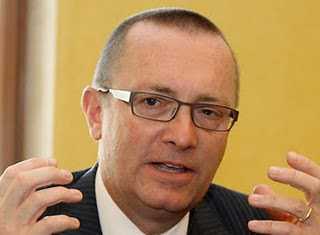
A crown prince of the UAE, staunch ally of Saudi Arabia and GCC member, provided opposition groups with cell phones to coordinate their anti-government activities. The cell phones were loaded with special satellite-linked SIM cards from not only the UAE, but Jordan as well. As the opposition began preparing for its ‘democratic’ assault on the ground, the Future Movement of Saad Hariri, former Lebanese Prime Minister and well-known Western-Saudi puppet, began coordinating the press campaign with none other than ubiquitous Zionist war criminal US Assistant Secretary of State for Near Eastern Affairs Jeffery Feltman and US Ambassador to Israel, Zionist Dan Shapiro (61).
The cell phones provided by the Zionist-Saudi ‘pro-democracy’ army are important to bringing down the Syrian Revolution’s house of cards. March 15th was the day that the Syrian Revolution began, and it was on this day, that many residents in Damascus were filing complaints with telecommunications firms, reporting unwanted text messages sent to them that called for all Syrians to join the protests. A Syrian investigation revealed that the text messages were sent from an Israeli military base in Tel Hashomer, near Tel Aviv. The Syrian official went on record, “The Israeli enemy could not have done this without help from one of the satellite communications companies (62),” i.e. the satellite-linked cell phones provided by Saudi Arabia’s UAE ally. Once again, the Zionist-Saudi nexus is exposed.
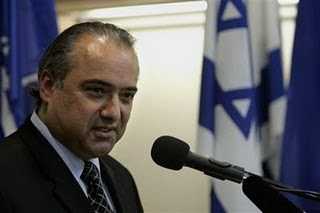
The assets of the Zionist regime in Syria were being led by the notorious Syrian exile Farid al-Ghadry, who had been disseminating information to the Western press through his Reform Party of Syria from the very beginning of the Syrian Revolution (63). The ‘unofficial spokesperson’ for the protesters in Syria was another infamous Syrian exile, Ammar Abdulhamid (64). Al-Ghadry and Abdulhamid are funding, guiding and organizing the protests of the tech-savvy insurrectionists who are mobilizing on the ground via the satellite phones that Israel’s miliary has direct access to. Al-Ghadry is staunchly pro-Zionism and is a proud member of AIPAC. Al-Ghadry also holds the putrid distinction of being the only Syrian to give a speech in front of the racist Israeli institution known as the Knesset. Abdulhamid is a fellow at the Saban Center for Middle East Policy at the Brookings Institution, one of the most powerful Zionist think tanks in America (65).
Former Vice President Abdel-Halim Khaddam, who facilitated contacts between Mossad and the Syrian Muslim Brotherhood, has also surfaced as a leader during the Syrian Revolution, calling for the West to intervene in Syria and take down Bashar al-Assad (66). Khaddam’s call echoes that of the same neoconservative mass murderers behind the invasion of Iraq, Afghanistan, Libya and the drone bombings in Yemen and Pakistan; leading the way on Syria is Zionist war criminal Elliot Abrams (67).
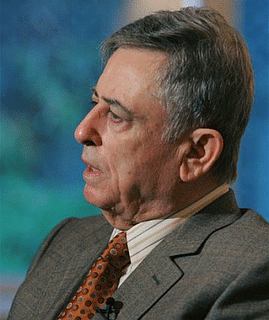
Khaddam is extremely intimate with Saudi Arabia. He accepted $30 million from the House of Saud in 2005 to step down from Bashar al-Assad’s government and the Saudi rulers later secured his safe passage from Damascus to Paris following his resignation. Subsequently, he initiated an alliance with the Syrian Muslim Brotherhood and outwardly plotted the removal of Bashar al-Assad. Over the years, Khaddam has been at Saudi Arabia’s beckoned call, his entire family enjoys Saudi citizenship and is directly related to fellow Saudi-stooge Saad Hariri and House of Saud ruler Abdullah due to their wives being sisters. Khaddam’s leadership role in Syria’s Revolution was mapped out at the Saudi embassy in Brussels, where he was transferred via Saudi transport just prior to the beginning of the Syrian Revolution. He became a director of the revolt, alongside al-Ghadry and Abdulhamid in the US. The Saudi Embassy in Brussels became a joint operational headquarters for the Israel-America-Jordan-Saudi nexus to plunge Syria into total chaos. Jordan’s role was vital, as it was in charge of providing weapons to the Syrian Muslim Brotherhood’s soldiers in its ‘capital’ cities of Daraa and Homs (68).
Jordan’s role was reaffirmed when Muthanna al-Dhari, son of Iraqi Resistance leader Sheikh Harith Suleiman al-Dhari, was apprehended by Syrian security forces for terrorist activities within Syria. Al-Dhari was expelled from occupied Iraq by his father at the beginnings of the occupation for being involved with the Mossad false flag bombings that have ravaged Iraq and for repeatedly meeting with Zionist military establishment leaders in Tel Aviv. Syrian officials uncovered that al-Dhari had set up a base of operations in Jordan and held a meeting at the base with a representative of Abdel-Halim Khaddam. It was also uncovered that al-Dhari was working with Israeli intelligence to coordinate Iraq-like terror attacks in Syria (69). This should not be surprising; Jordan has kowtowed to the occupying Zionist regime’s every whim for decades.
With the Saudi-Israeli-directed protesters continuing to pour into the streets and insult Iran, Hezbollah, slander Ayatollah Sayyed Ruhollah Khomeini and despicably burn photographs of Hezbollah Secretary General Sayyed Hassan Nasrallah (70), former Mossad chief Meir Dagan declaring that it is in Israel’s best interest to overthrow Bashar al-Assad and install a ‘Sunni’ regime to weaken Hezbollah (71) and the Zionist-occupied United States government routinely contacting the Syrian Muslim Brotherhood (72), the whole picture should be illuminated now: the Syrian Revolution is 100% manufactured by the Zionist entity and the House of Saud.
~ End Of Part I ~
Next: Al-Jazeera’s shadowy role in the ‘kiss of democratic death’ placed on Syria, Turkey’s two-faced involvement and Israel’s ‘greater’ agenda…
Sources:
(1) Iraq Today: 5 Million Orphans by Zaineb Alani, Socialist Action
(2) UN: 7.4 Million Afghans Are Living With Hunger And Fear Of Starvation by Michelle Nichols, RAWA News
(3) Haneen Zoabi: A Palestinian Woman Fighting For Equality In Israel by Khaled Khalefa, Xinhua
(4) 10 Injured In Non-Violent Weekly Protests Friday by IMEMC and PNN; The Weight Of Nationalism In Nabi Saleh by Joseph Dana, 972 Magazine
(5) Interview With Milad Ayyash’s Sister by Palestine Monitor
(6) B’TSelem: Gaza, 95% Factories Are Closed, 93% Of Water Is Polluted by Haitham Sabbah, Sabbah Report
(7) Life In Jordan Valley Strangled By Israeli Military Control by Jillian Kestler-D’Amours, The Electronic Intifada
(8) Jerusalem’s Israeli Municipality Discusses Plans To Build 7600 Units by WAFA
(9) Israel And India: Brothers In Occupation Of Kashmir by Jonathan Azaziah, Mask of Zion
(10) CRPF Troopers In IHK Get New Israeli Assault Rifles by Kashmir Media Service
(11) US Neo-Cons Urge Libya Intervention by Jim Lobe, Al-Jazeera English
(12) Mounting Evidence Of CIA Ties To Libyan Rebels by Patrick Martin, Global Research
(13) Libyan Rebels Will Recognize Israel, Bernard-Henri Levy Tells Netanyahu by Radio France Internationale
(14) Libya War Is About Theft Of State Assets And Total Restructuring Of A Nation by Martin Iqbal, Empire Strikes Black
(15) NATO Operation In Libya Is Collective Punishment – Ex-Congresswoman by Russia Today
(16) Libya Under NATO Attack by Congresswoman Cynthia McKinney, Dissident Voice
(17) Libyan Gov’t Claims ‘Barbaric’ NATO Raid Killed Civilians, Children by The Raw Story
(18) UNSC Resolution 497 Invalidating Israel’s Annexation Of The Golan Heights by The Institute For Middle East Understanding
(19) Special Commentary: Iranian Reaction To The Great Syrian Revolt by Babak Rahimi, The Jamestown Foundation
(20) Saudi Arabia, Jordan Behind Syria’s Unrest by Hassan Hanizadeh, Press TV
(21) Ofergate: The Latest Zionist Propaganda Blitz Against Iran by Jonathan Azaziah, Mask of Zion
(22) Lebanon Marks 36th Anniv. Of Civil War by Serena Shim, Press TV
(23) Asad: The Struggle For The Middle East by Patrick Seale
(24) February 24, 1982: Syria Offers Picture Of Hama Revolt by John Kifner, The New York Times
(25) Dreams And Shadows: The Future Of The Middle East by Robin Wright
(26) Destruction Of Hama and Hums In Syria by The UN Refugee Agency
(27) George Soros’ International School Of Youth Corruption by Marek Glogoczowski, Free Speech Project
(28) Naming Names: Your Real Government by Tony Cartalucci, Land Destroyer Report
(29) Incubator Babies, “Stonings” And Amnesty International’s Dirty Propaganda War by Aion Essence, Alter Net
(30) Syria’s Tadmor Prison: Dissent Still Hostage To A Legacy Of Terror by Human Rights Watch
(31) George Soros Gives $100 Million To Human Rights Watch by Ed Pilkington, The Guardian
(32) What Happened In Kurdish Halabja? by Professor Mohammed al-Obaidi, Global Research
(33) Flashback: What Do Fallujah And Halabja Have In Common? by Ghali Hassan, Uruk Net
(34) The Massacre Of Hama (1982): Law Application Requires Accountability by The Syrian Human Rights Committee
(35) About Us by The Syrian Human Rights Committee
(36) Links: Government And Politics by The Syrian Human Rights Committee
(37) Israel Hopes To Colonize Parts Of Iraq As ‘Greater Israel’ by Wayne Madsen, Online Journal
(38) The Israeli-Kurdish Relations by Sergey Minasian, 21st Century, Number 1, April, 2007
(39) Israelis ‘Train Kurdish Forces’ by Magdi Abdelhadi, BBC News
(40) A Strategy For Israel In The Nineteen Eighties by Oded Yinon, Kivunim
(41) A Clean Break: A New Strategy For Securing The Realm by The Institute For Advanced Strategic and Political Studies
(42) The Hariri Assassination: The Role of Israel? by Rannie Amiri, Global Research
(43) Sayyed Nasrallah: “Israel” Behind PM Hariri’s Assassination by Nour Rida, Moqawama English
(44) Mossad Hacked Syrian Official’s Computer Before Bombing Mysterious Facility by Kim Zetter, Wired
(45) Syria Rebuilds On Site Destroyed By Israeli Bombs by William J. Broad, The New York Times
(46) Sy Hersh Confirms: Syrian Facility Bombed By Israel Was Not Nuclear by David Edwards and Muriel Kane, The Raw Story
(47) What Did Israel Bomb In Syria? by Pepe Escobar, The Real News
(48) Israel Denies Involvement In Syrian General’s Assassination by Yoav Stern, Haaretz
(49) Defence Chiefs Urge Hawk Netanyahu To Strike Deal With Syria by Uzi Mahnaimi, The Sunday Times
(50) Spy For Israel ‘Admits’ Scouting Mughniyeh Hit Site by The Daily Star
(51) Israel Implicated In Suleiman Shooting by The Tehran Times
(52) US ‘Secretly Funded Syrian Opposition’ by Li Ying, Global Times
(53) British Report: Mossad Unprecedentedly Penetrates The Syrian Opposition Financially And Politically by Jouhina Portal News
(54) “A President Of Afraid Of Allah” by Michael J. Totten, Pajamas Media
(55) From Syria With Doubt by As’ad Abu Khalil, The Angry Arab News Service
(56) ‘Let Israel Come And Take Syria’ by Ynet
(57) Syria’s Assad Offers Dialogue, Rejects Chaos by Ma’an News Agency
(58) We Are Not Seeking To Topple Assad: Syrian Opposition Member
(59) In Syria, The Regime Lies And So Does Elements Of The Opposition–US Government Confirms The Presence Of Religious Armed Groups by As’ad Abu Khalil, The Angry Arab News Service
(60) AP: Muslim Brotherhood Behind Syria’s New ‘Day Of Rage’ by Jonathon M. Seidl, The Blaze
(61) Syria, In The Eye Of The Storm – Part II by Nidal Hmedeh and translated by Eslam al-Rihani, Al-Manar
(62) Syria: Israel Behind Anti-Government Rallies by Roee Nahmias, Ynet
(63) Syria, In The Eye Of The Storm – Part I by Nidal Hmedeh and translated by Eslam al-Rihani, Al-Manar
(64) Syrian Rebels Don’t U.S. Aid, At Least For Now by Eli Lake, The Washington Times
(65) Uprisings In Syria Appear To Be The Work Of Foreign Agitators by Keith Johnson, American Free Press
(66) Syria, In The Eye Of The Storm – Part III by Nidal Hmedeh and translated by Eslam al-Rihani, Al-Manar
(67) Neocons Target Assad Regime by Jim Lobe, Antiwar.com
(68) Saudi Arabia, Jordan Behind Syria’s Unrest by Hassan Hanizadeh, Press TV
(69) Syria Nabs Israeli-Backed Terrorist by Press TV
(70) Syrian Protesters Turn On Iran And Hezbollah by France 24
(71) Dagan Doubts ‘Arab Spring’ by Yoav Zitun, Ynet
(72) US And Syrian Muslim Brotherhood by As’ad Abu Khalil, The Angry Arab News Service
http://www.maskofzion.com/2011/07/kiss-of-democratic-death-israels-plot.html, 6 July 2011

